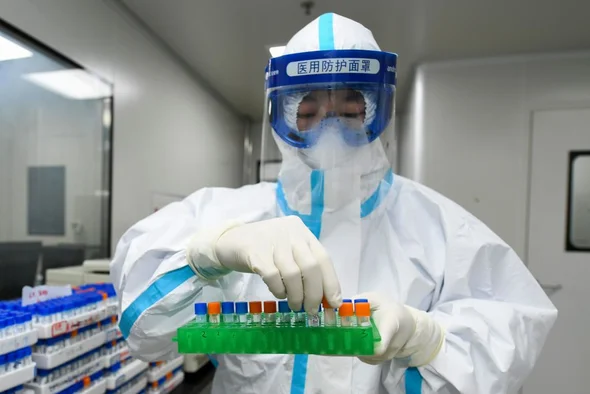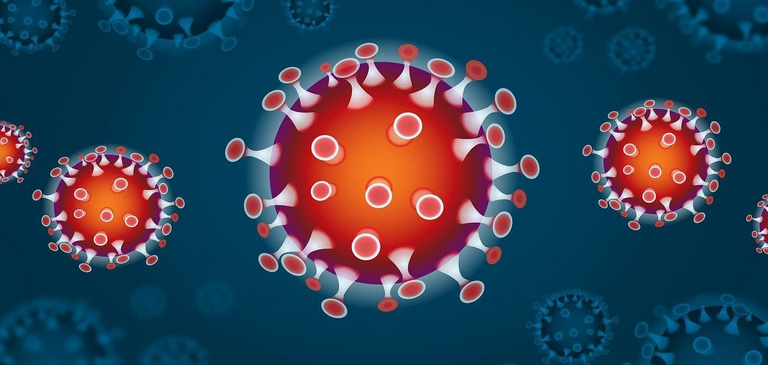Frankenstein and Randomization of Synthesis - COVID-19 and Randomized Research
On January 19th, a 35-year-old American went to a clinic. He had a cough and a high fever, to decide to get medical help, and so he ended up in that clinic, waiting for the unknown.
The next day, this thirties became the first confirmed case of HIV infection in the United States. The patient was isolated in a hospital, observing his condition, and when his condition worsened, the therapists considered injecting him with an experimental anti-viral drug called "Remsdevir", as his condition began to improve until he fully recovered.
Scientists around the world are now striving hard to identify this virus and try to find effective treatments for it. However, until now, there is no specific drug licensed by the US Food and Drug Administration.
So we have to wait a little bit more to try drugs even if some of them succeed, and we will review in this article some advice from the scientist Alex John London about the randomness in scientific research and what are the risks that may lead to it.
Frankenstein did not intend to create a monster, but when he made "a sensible, alien creature, it was difficult to deter, a monster that killed his brother and his wife, but killed him as well."
Perhaps that was the message that English author Mary Shelley wanted to convey to the world in her novel, "Frankenstein", that science needs ethical standards and tasks governing his constituency, stressing also the necessity of arming "scientific research" with moral ideals, as a social activity aimed at producing the information that doctors rely on In treating patients, strengthening health systems.

Stop random searching
The "Covid 19" virus has turned into a pandemic that does not recognize geographical boundaries, ethnic diversity or sexual discrimination, which helped the emergence of a huge amount of studies on an "almost daily" basis without many of them adhering to the accepted scientific and methodological principles, such as the accuracy of documentation and the adequate amount of experiments Clinical presentation of arguments and evidence and not taking the "emerging corona" pandemic justified the abandonment of strict search criteria.
Scientists Alex John London, professor of ethics and philosophy and director of the Carnegie Mellon University's Center for Ethics and Politics, and Jonathan Kimmelman, director of the Biomedical Ethics Unit at McGill University, advocate that the ethical mission of scientific research remains the same: reducing uncertainty and empowering Caregivers, health systems, and policy makers better address individual and public health. "
The ethical mission of scientific research is to support the community and ensure that physicians, health systems and policymakers have the evidence they need and the outpouring of studies recorded after the outbreak of the pandemic, which received much media attention, helped to publish wrong results.
Scientists believe that "all crises present exceptional cases in relation to the challenges they pose to health and instead of obtaining permission to conduct low-quality investigations, the urgency and scarcity of epidemics increase the responsibility of key actors in research projects to coordinate their activities to support the criteria necessary to advance this task."
In this context, the two scientists offer ethical and scientific recommendations, the most important of which is to "give sponsors, research institutions and health organizations a priority to research methods and resist the desire to conduct and publish small, unedited studies, and to search - instead - for opportunities to join larger studies that are carefully coordinated."
Regarding the risks that mankind can face in the event that researchers do not follow the ethical task of scientific research, London says: We are concerned because during the rush to move quickly in the face of epidemics, this may lead doctors to waste time and effort in purchasing and managing it without any little benefit, The condition of patients will not improve, and they may be worse. Moreover, these protocols are usually used so that low-performance treatment interventions can be abandoned and new promising therapeutic interventions created, "he says.
According to the paper, regulators and public health authorities should play a leading role in identifying studies that meet stringent standards and foster collaboration between a sufficient number of centers to ensure appropriate recruitment to avoid severe exposure to patients and health systems.

This post earned a total payout of 0.276$ and 0.138$ worth of author reward that was liquified using @likwid.
Learn more.